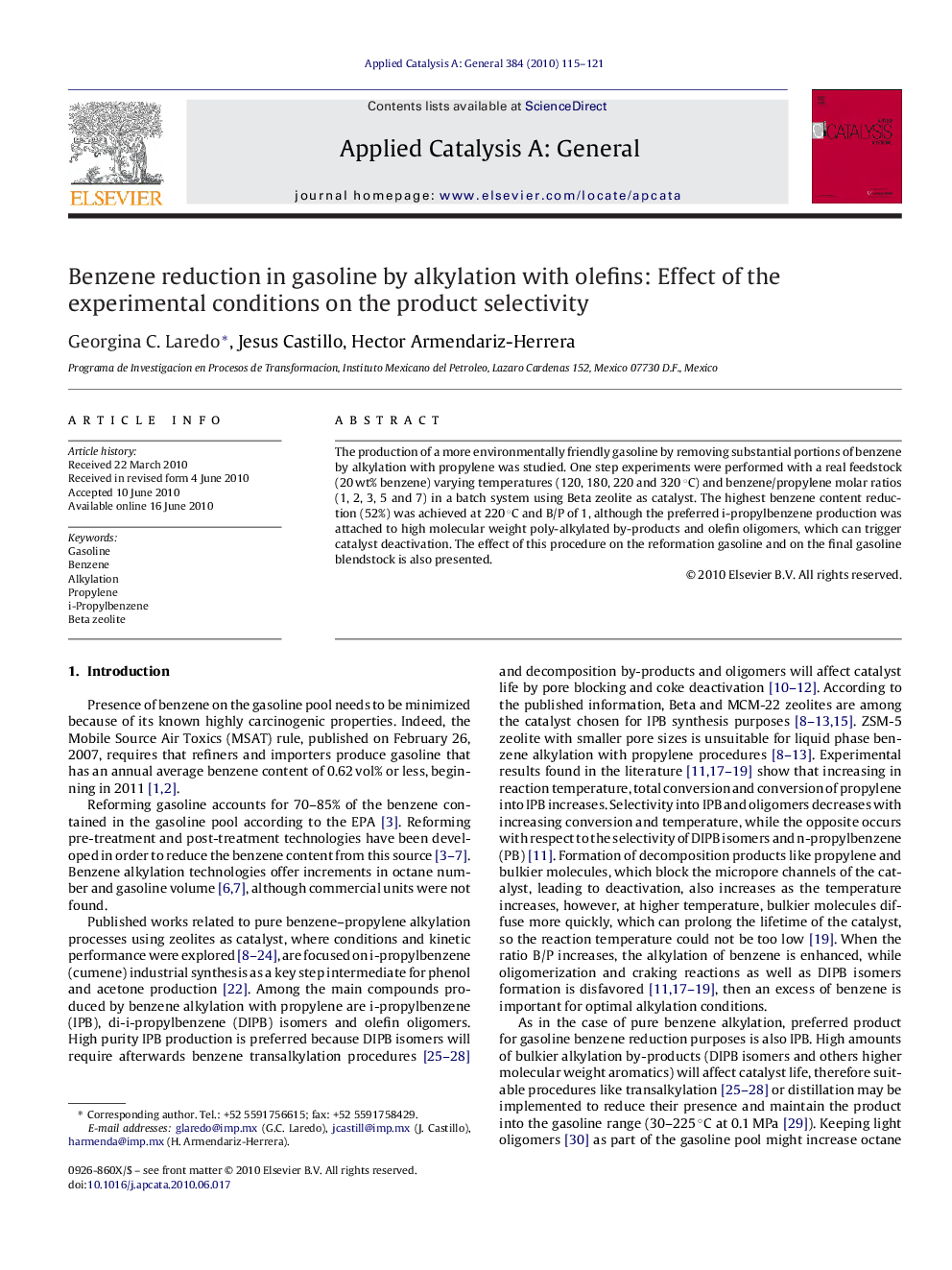| Article ID | Journal | Published Year | Pages | File Type |
|---|---|---|---|---|
| 41943 | Applied Catalysis A: General | 2010 | 7 Pages |
The production of a more environmentally friendly gasoline by removing substantial portions of benzene by alkylation with propylene was studied. One step experiments were performed with a real feedstock (20 wt% benzene) varying temperatures (120, 180, 220 and 320 °C) and benzene/propylene molar ratios (1, 2, 3, 5 and 7) in a batch system using Beta zeolite as catalyst. The highest benzene content reduction (52%) was achieved at 220 °C and B/P of 1, although the preferred i-propylbenzene production was attached to high molecular weight poly-alkylated by-products and olefin oligomers, which can trigger catalyst deactivation. The effect of this procedure on the reformation gasoline and on the final gasoline blendstock is also presented.
Graphical abstractFigure optionsDownload full-size imageDownload high-quality image (119 K)Download as PowerPoint slideResearch highlights▶ Formation of by-products could not be avoided by changing experimental conditions. ▶ A maximum benzene conversion was obtained at 220 °C (1/1 B/P). ▶ Formation of by-products decreased at lower temperatures. ▶ Benzene conversion decreased drastically at higher B/P molar ratios. ▶ IPB selectivity increased slightly at higher B/P molar ratios.
